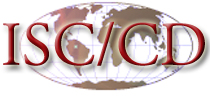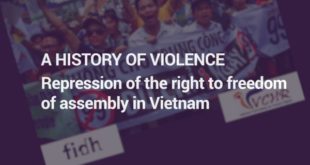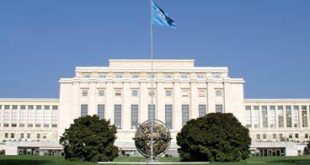 |
Civil Society Recommendations
for the Ulaanbaatar Ministerial Declaration Presented by the nongovernmental International Steering Committee of the Community of Democracies (ISC/CD) 29 April 2013 |
We, the representatives of civil society gathered in Ulaanbaatar for the Seventh CD Ministerial Conference add our voices to the Ministerial Declaration to:
1. Applaud the Democracy Partnership Challenge and call for an expansion of its task forces to assist with democracy transition in a greater number of countries around the world. We urge that a robust civil society component be built into future missions including a role for international civil society and for nongovernmental organizations of the country concerned.
2. Express our support for the continued development of the LEND network in expanding an exchange of knowledge and ideas between leaders from consolidated and emerging democracies.
3. Regretfully support the suspension of Mali from the Community of Democracies and urge it not be readmitted until the restoration of its democracy is manifest. We recommend that the CD organize missions similar to that conducted in Mali to assist with the return to democracy for other countries experiencing difficulty with their democratic system of government.
4. Encourage the important work of the CD Working Groups, especially those on Education for Democracy, on Gender Equality, and on Enabling and Protecting Civil Society, and call for the creation of new Working Groups on Freedom of Religion and Belief, on Academic Freedom, on Elections, and on Media Freedom, including traditional media and online media.
5. Work with the Permanent Secretariat and the ISC to assure support, including funding for nongovernmental participants, visa support, and sufficient advance notice for invitees in order to enable civil society to participate in all important CD meetings, including those of the Governing Council, Working Groups, Executive Committee and Ministerials.
6. Call on all governments to give full protection to the independent functioning and safety of civil society organizations, as they are indispensable for the functioning of democracy and good governance.
7. Specifically, urge all CD governments to publicly condemn the increased pressure on civil society organizations, particularly those in Russia, Azerbaijan, Ethiopia, Iran, Vietnam, Venezuela, China, Bahrain, Zimbabwe, and Egypt, where NGOs are harassed by governments who accuse them of acting as “foreign agents” and for “undermining national sovereignty.” CD governments should condemn those who stigmatize and persecute NGOs for their legitimate human rights and democracy work on the grounds that they receive funds from or work with international partners.
8. Call on the CD Governing Council and all CD governments to express solidarity with and provide protection for persecuted civil society activists and endorse a landmark UN Human Rights Council Resolution of March 21, 2013, on protection of human rights defenders, which calls for the amendment of national laws targeting human rights defenders, as well as laws which restrict NGO’s from receiving international funds.
9. Urge all CD governments to encourage their diplomats to engage with civil society in authoritarian and transitional societies to support democracy as outlined in the Diplomat’s Handbook for Democracy Development Support.
10. Assure that CD governments formally consider how the training of their own armed forces and police forces and those of other nations can be permeated by a concern for the values of democracy and human rights to ensure control of the military by democratically elected civilian governments.
11. Strengthen the role and effectiveness of the UN Democracy Caucus in New York, Paris and Geneva, taking as a point of departure the establishment of a sub-committee on education for democracy in each venue to assure the implementation of the November 2012 UN General Assembly resolution on that subject.
12. Call upon the Governing Council to identify other issues that could be pursued through the Caucus by groupings of select member states.
13. Assure that no country shall serve as President of the Community of Democracies or on the Governing Council unless it is generally recognized by independent experts as a democracy, whose political practices and institutions are in compliance with the standards of the Warsaw Declaration.
14. Reiterate our position that the Observer Status at the CD Ministerials should be strictly reserved for countries committed to deepening democracy and meeting the standards of the Warsaw Declaration and request that the CD Governing Council confirm this policy. The GC should take into account the views of civil society, both national and international, in determining whether the invitation will advance or hinder the cause of democracy in the country.
15. Urge the governments of the CD member states to be guided by the recommendations contained in the ISC/CD Charlottesville Declaration in actively adopting policies to advance education for democracy.
16. Regard it as imperative that governments of the Governing Council provide funding adequate to support the Permanent Secretariat.
17. Commend Governments for inviting democracy activists from countries not participating in the CD and for arranging opportunities for private conversations among government officials and these activists. We call upon governments to continue and to expand this process.
18. Call on all governments to advance in ensure the independence, impartiality, transparency, autonomy and objectivity of electoral authorities as well as the mandatory participation of national and international observers and monitors in the elections. Governments should guarantee access of the independent observers and monitors to polling stations and electoral commissions and refrain from putting pressure on them and harassing them. Democracies should refrain from recognizing as legitimate those elections that do not meet international standards for free and fair elections.
19. Welcome the creation of an Asian democracy network and encourage other regional networks and encourage the creation and strengthening of other regional democracy networks.
 Quê Me Quê Me: Action for democracy in Vietnam & Vietnam Committee on Human Rights
Quê Me Quê Me: Action for democracy in Vietnam & Vietnam Committee on Human Rights


